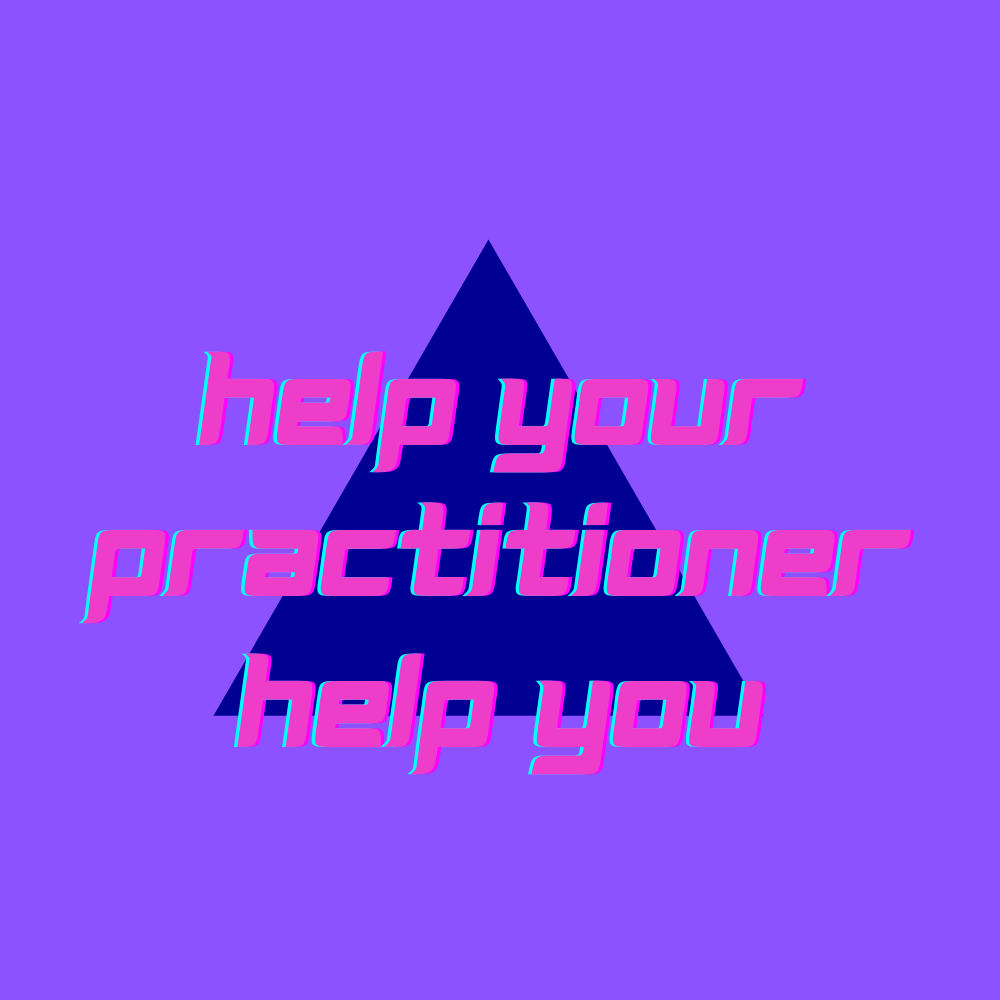Help Revolutionize Health Care Treatment
Help Practitioners Help you
I have been an RN in health Care since 1975. I have seen many changes and would like to make the process of finding solutions for their health issues easy and painless to discover. It is a process, but we are in desperate need of a solution now that the pandemic of COVID19 is upon us. I love the process of finding the root problems to any illness in whatever stage or symptom it rears its ugly head in! So do most if not all health care workers.
It is very frustrating to me to work with patients and know that they are not understanding the illness process, or simple health matters themselves. Patients need to educate themselves in the medical field. There is so much that the patient needs to learn. There is a lot more that a health professional needs to know.
1. Know what to expect from your choice of health care provider.
- Find out as much as you can about the staff and about the unique way, they view heal care.
- Carefully examine the reviews. Talk to friends and family. Search out their web site.
- Remember they want to help you; they are in the health care business and have spent years learning and practicing.
- Find out what areas of health they have had experience in. What is their field of expertise?
- What is their office visit routine?
- What paperwork do you need?
There are as many types of specialists as there are diseases. To list them all would be an exhausting phenomenal feat (or de-feat!). Just as there are many departments and types of hospitals, there are as many policies in each facility and there are as many beliefs and practices as there are individual practitioners.
I do not have the same view of healthcare as my co-workers do but we all have a similar reason to be in healthcare. We want to make an impact on health. You also will find many renegades. I consider myself to be a renegade myself. Of course, only the best. You want to make sure that you and your clinician will be able to communicate well.
Health workers are as individual as the patients are individual. We do not need to lump patients in one or two or a few categories. In addition, patients should not characterize each health care worker as the same type of people.
2. So do your research BEFORE your Visit – unless it is an emergency.
Click here for suggested areas of practice available and brief descriptions that you should be aware of.
3. Understand the perspective of the health care facility you choose.
This is a fantastically easy, and effective way to receive the answers to your health problems that you deserve to have.
- What their process is in getting down to why you have the problem you have?
- How do they find out why you have your problem?
- Do book research, search the internet for data and information on your illness or health problem.
- Be knowledgeable on the process of diagnosis and treatment so you can make an intelligent and informed decision on the facts presented to you by your health professional.
Just FYI, it is useless and unproductive to demand that the health care staff do it the way you want them to.
- #1. They may have inside information on processes that you are not aware of.
- #2. There is no need for a power struggle, but only a sharing of information.
- #3. They are aware they do not hold all the answers and they do know that you have valuable input to give them. Hand out your information in a professional and intelligent manner.
- #4. If you have questions about the interactions of medications, ask if it would be possible to have a pharmacist check out the drug interactions.
- Or better yet, check out the interactions and ask questions.
- It is always better to ask questions rather than to state data that you may not be able to back up. Be ready to have a solid answer for what you say.
- The practitioner and you are a team, treat them that way, with respect and you will be respected in turn.
3. Know and have handy all prior facts, labs, tests ahead of your visit.
- Make a 5-minute summary of everything you want to tell the Doctor. Let him or her ask the questions.
- If you have gone to a doctor or practitioner before the one you chose to see now, give them the information that they were unable to treat, or that they do not have access to procedures, or to labs, or whatever they want you to have done.
- Have that primary craft a letter to the new practitioner detailing the facts they have found.
- For instance, if a medical doctor is referring you to a dentist, get the specific reasons why they feel you need to see one. E.g., x-rays, lab work, tests.
If you have gone to an alternative therapist, have them give you the exact symptoms that relate to a suspected diagnosis. Many doctor’ do not see the value in alternative medicine and will resist any suggestions unless there is substantial evidence.
I have found that as an RN if I want to get the Dr. to listen to the complaints of the patient, I want to have all the data in-front of me and give the professional the SBAR situation in a clear way with factual data, so the request is clearly understood. For instance, if I suspect a patient is having a heart attack, I will include symptoms of a heart attack, a very brief summary of the patient’s medical condition, plus my assessments any other documented data or lab tests that may substantiate my findings and help the healthcare professional see the urgency of the situation. I then would request some proof of my findings in the form of a test, lab work, x-ray or other data. All of this should be completed briefly but completely, taking as little time as necessary.
- What are your current, immediate complaints? (Pick the most urgent one).
- What illness have you had that led up to the symptoms?
- What tests or workup has been done before this?
- What would you specifically like the practitioner to do?
This is not the time to brainstorm at the office meeting. Of course, make it personable. Respect the practitioner’s time and knowledge and the sincere desire to help you. If you need more information, ask your practitioner to give your ideas you can research on your own. They will not expect you to come up with the solution, you came to the practitioner for that answer.
4. Use your intuitive knowledge about your own health to your advantage.
Ask questions to encourage questions. Back up your findings with facts and present it in a way that is easy to understand, clear to follow and that will encourage the practitioner to ask you questions. Many times, I have seen a patient tell me that they feel something is wrong with them. Sometimes they do not have the right words to express it. At times they need prodding. If you feel something is wrong but cannot get the words out, ask your primary for an explanation of the process of whatever it is you may think is going on. I saw one patient go through a horrible time in trying to express what was going on, she was accused of trying to get attention. With careful questioning we arrived at some incredibly significant findings that needed immediate attention.
5. Your visit’s purpose is to obtain as information and direction.
Remember, to help as many people as possible, the Dr. must limit his time per patient. This is frustrating on both sides. If you do your homework and come with some good specific data, you will get more solutions. I have seen situations where the doctor was so puzzled about the symptoms and lack of response to the usual solutions, that after the appointment that doctor would brainstorm for days with another colleague to find a solution. But I rarely see it in the office visit itself.
Take control of your own health.

The point? One simple little thing that would make a great difference in the health care world. Learn what you need to learn to keep yourself healthy. Learn from professionals, listen to your intuitive knowledge of what your health is doing. Let’s take back our health and work together to make more people healthy. Take back your health. Be intelligent and knowledgeable about health facts. Be open to learning things that you may not understand or have learned yet and get the facts you need to make intelligent and useful decisions concerning your health. Base your health decisions on true, grounded facts from a variety of sources.
*Note added to include COVID update on medical visits on 7/30/20. We have been progressively instituting more strict health policies. If the tips are followed it would be a positive way to have less exposure at medical facilities.
- Wear your CDC approved mask
- Keep the required social distancing 6 feet apart
- But more than that – Please
- Wash Your Hands Frequently
- With soap only and rinse thoroughly

I wish I had this information 11 years ago! I will be using this in the near future as I take my son to a new pediatrician. ;o) Thanks so much
Each Doctor has their own requirements, so I’m glad this helped. Thanks for reading.